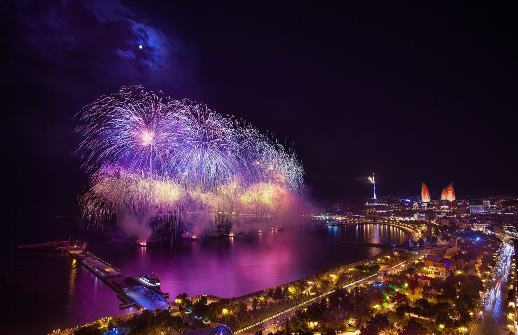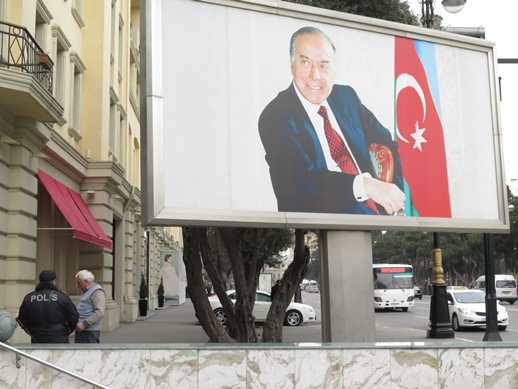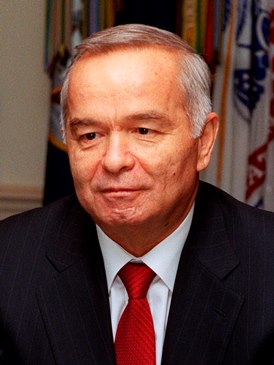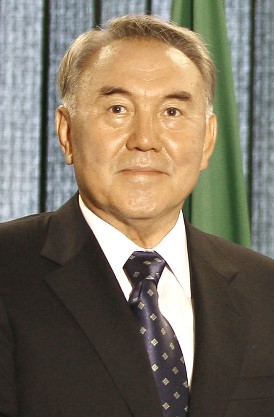
In a somewhat geographically and culturally challenging development, the first ever European Games begins today (13 June) in Baku, the capital of Azerbaijan.
Azerbaijan is more usually identified as a Central Asian country, but the European Union considers it to be in what it calls its “European Neighbourhood” – what others in the world would call “our backyard”. This might be shorthand for “an area close enough to us that what happens there affects our peace and stability” – Ukraine is another country in the “Neighbourhood”.
And even as the Games start, the Organisation of Security and Co-operation in Europe has been given one month to halt its operations in the country. Aidyn Mirzazade, a lawmaker from the Azeri ruling party, said this was because the OSCE has fulfilled all its goals. However, OSCE has a role to oversee free and fair elections, and parliamentary elections are due in the autumn.
Just days ahead of the Games, on Tuesday the global human rights organisation Amnesty International was also ordered to leave Azerbaijan.
Amnesty launched its report, “Azerbaijan: the Repression Games”, in London on Wednesday, in which it highlighted human rights abuses in the country.
But what about rights to freedom of religion or belief in Azerbaijan, and, more generally, across Central Asia? The Games and the surrounding publicity offer a reason to take a closer look at the region.
Which countries belong to Central Asia?
Central Asia is generally understood to refer to the geographical region encompassing the five ‘Stans’ formerly belonging to the Soviet Union – Kazakhstan, Uzbekistan, Kyrgyzstan, Tajikistan and Turkmenistan.
Parts of the neighbouring Caucasus region such as Azerbaijan and some areas of Russia are often mentioned in the same breath (although not technically part of Central Asia), due to similarities in cultural, political and religious life.

Why is there pressure on religious practice, and especially on Christians?
After the collapse of the Soviet Union a quarter of a century ago, the newly established Central Asian nations used Soviet tactics to maintain control. As in Soviet Russia, religious ‘zealots’ were considered a particular threat and laws were created to ensure all aspects of religious life were closely monitored.
The laws vary and have evolved over time, but the general trend is for a slow, steady increase in pressure to ensure, as governments follow the mantra of Italian dictator Benito Mussolini, that nothing is considered more important than the state.
How pressure is exerted
The pressures on Christians in Central Asia vary from country to country. In some places, Christians face harassment, fines and even imprisonment for very ordinary activities. This can mean anything from possessing a single religious book or DVD to holding a prayer meeting at a building not registered with the state as a place of worship – even one’s own home.
Christian charity Open Doors International refers to this type of pressure as “dictatorial paranoia.”
“The regimes want to stay in power at any cost. Communism as an ideology is dead. Now it is a simple question of staying in power,” said Rolf Zeegers, an analyst for the charity.
The respective Presidents of Uzbekistan, Kazakhstan and Tajikistan have each been in power since the early 1990s. The re-election in March of Uzbekistan’s President, Islam Karimov, to a third term (even though the constitution limits Presidents to two terms) was followed in April by a fifth consecutive election victory for Kazakh President Nursultan Nazarbayev. Both elections were foregone conclusions, with each victor recording more than 90 per cent of votes.
The World Watch List, Open Doors International’s annual list, which ranks the 50 countries where life as a Christian is most difficult, cites two major persecution ‘engines’ in Central Asia: ‘dictatorial/totalitarian paranoia’ and ‘Islamic extremism’. Two more ‘engines’, ‘organized corruption’ and ‘tribal antagonism’, are secondary ‘engines’ in some countries.
Learn more: All about the World Watch List
Learn more: What are the ‘Engines of persecution’?

Some examples
Below, World Watch Monitor provides 10 examples of the ways in which Christians are put under pressure in Central Asia…
Fines
Handed out liberally and without cause. This occurs frequently in countries like Kazakhstan, Turkmenistan and Uzbekistan.
Arrests
Arrests are used not only to scare the person arrested, but to create rumours amongst the community. The assumption is often that sensitive information was divulged and that the person no longer can be trusted.
Police brutality
It is common for those arrested to be beaten in detention. Prisoners are often deprived of food and water and held for days without charge.
Raids
Even on occasions where searches do not end in arrest, the raid itself can be traumatic. Any materials found during the raid are confiscated.
Religious literature
A total or partial ban on possession and/or distribution of religious literature. Even where possession is allowed, the presumption is that those who possess Christian materials intend to distribute them, which is illegal. Confiscated materials are rarely returned and generally destroyed, or, in some cases, even sold by officials on the black market. In some cases, religious literature is permitted only if it is in Russian. Although Russian is still widely spoken everywhere other than Tajikistan, native languages are preferred by non-Russian Central Asians, particularly in rural areas.
Registration of churches and members
A requirement for churches to register their buildings and/or members. Activity in non-registered buildings, or failure to register all members, can result in fines. It is typically very difficult to register a church in Central Asia. A minimum, often unattainably large, number of members is usually required. Until they find sufficient numbers, any activity is considered illegal.
Contact with the outside world
Contact with foreign believers or Christian organisations is frowned upon. Invitations for speakers from other countries must be approved. The speaker may need unique qualifications and churches will be pressured to explain why a national speaker will not suffice.
Spying
Homes, computers and/or phones are often bugged. All media are state-controlled. Internet access is possible only through state-controlled ISPs.
Infiltration
Undercover agents infiltrate churches, leading to arrests, fines, or, at the very least, suspicion.
Burials
This trend is found mostly in Muslim communities in Kyrgyzstan, where Christians – particularly converts from Islam – struggle to bury their dead. The common tradition is for the dead body to return to the village community where the family originated, but converts are seen as bringing shame on the community. As a result, they and their family members, whether or not they also have converted, are prevented from being buried there. Central Asian governments have failed to support their Christian citizens on the matter.
Country profiles
Uzbekistan
2015 World Watch List ranking: 15
Persecution engines: Totalitarian paranoia, Islamic extremism, Organized corruption
Uzbekistan is by far the most populous Central Asian country, with more than 30 million people – twice as many as the second-largest country in the region, Kazakhstan.

Helene C. Stikkel / CC
Uzbekistan is generally considered to have the most restrictive laws in Central Asia. Sanctions on religious literature are particularly stringent. Religious books must be read in designated areas only, such as registered church buildings. Fines are hefty and regularly issued.
At No. 15, Uzbekistan is the highest-ranked Central Asian country on the 2015 World Watch List.
There are around 210,000 Christians in Uzbekistan, according to the latest figures from Open Doors International, but during the last 10 years “not a single church has been able to register”.
“In recent years, the situation of Christians has remained the same, as authorities and families continued to put enormous pressure on Christians. In each sphere of life, the situation for Christians deteriorated, most notably in the family sphere.”
Turkmenistan
WWL: 20
Persecution engines: Dictatorial paranoia, Islamic extremism, Organized corruption
At No. 20 on the World Watch List, Turkmenistan ranks alongside Uzbekistan as one of the toughest places to be a Christian in Central Asia.
Turkmenistan’s comparatively small population of just 5 million makes it “easier to control”, one local Christian told World Watch Monitor. Dissenting voices are quickly silenced through imprisonment, brutality and hefty fines.
The death of former president Saparmurat Niyazov in 2006 brought hope that restrictions might ease. Niyazov was a cult figure, who installed a rotating golden statue of himself that always faced the sun, and produced a book, the “Ruhnama,” that was required reading.
Though his successor, Gurbanguly Berdymuhamedov, moved the golden statue outside the centre of the capital city, Ashgabat, and took steps to reduce the perceived importance of the Ruhnama, the former president is still held in very high regard, and changes to his policy considered almost sacrilegious. After his re-election in 2012, Berdymuhamedov announced a new “Era of Supreme Happiness,” and then, in May 2015, erected his own golden statue, suggesting one personality cult has been replaced by another.
Open Doors estimates there are around 95,000 Christians in Turkmenistan, but just a dozen or so registered churches – the majority of which are Russian Orthodox. As most ethnic Turkmens are very unwilling to be associated with the Russian Orthodox churches, they have few legal options for practising their faith.
“Non-registered religious activity is illegal …. Even registered religious communities face regular check-up visits. There is strict control by the government and local authorities over the Turkmen population, and all communication is being monitored,” according to the World Watch List report.
“Publishing and distributing religious literature is prohibited, and its import is monitored and censored. There is no Christian bookshop in the country.”
Kazakhstan
WWL: 42
Persecution engines: Dictatorial paranoia, Islamic extremism, Organized corruption
The ninth largest country in the world by land area, Kazakhstan has a relatively small population (around 18 million) because much of the terrain is barren steppe. President Nursultan Nazarbayev has ruled the oil-rich country since it gained independence.

is another long-standing leader. He has been President of Kazakhstan since 1989.
Ricardo Stuckert / CC
Restrictive rules on religion were updated in 2011 in the aftermath of the Arab Spring, as the government sought to tighten its grip. Churches were forced to re-register, which led to a significant decrease in the number of registered churches, as many had too few members to meet the requirements.
Generally speaking, places of worship that have existed for some time face less pressure, but newer churches must provide convincing proof of why they deserve to be registered. Until a venue is registered as an official “place of worship”, all activities are prohibited.
Hefty fines are given for any religious activity without permission – typically equivalent to one or two months’ wages. If fines are not paid, the recipient is placed on an ‘exit blacklist’ preventing them from leaving the country.
Missionary activity is possible, but only with permission – and “missionary activity” includes any work by a pastor in a church other than his own.
Although the country is very strict, dialogue with the government is more possible than in other Central Asian countries, as shown by the existence of groups such as the Association of Religious Organisations of Kazakhstan, which is able to exert pressure on the government.
Open Doors International reports that “the position of Christians in the country remains as difficult as before, and has even worsened a little …. The regime of President Nursultan Nazarbayev continues to tighten the screws on Christians”.
Tajikistan
WWL: 45
Persecution engines: Dictatorial paranoia, Islamic extremism, Tribal antagonism, Organized corruption
Tajikistan is another Central Asian country ruled by one man for a very long time – over 20 years in the case of Tajikistan’s Emomali Rahmon.
A small, mountainous and poor nation just north of Afghanistan, Tajikistan is unique in Central Asia for its use of the Persian language – although the Russian Cyrillic alphabet is still used.
Tajikistan has become increasingly Islamic and is embracing more conservative schools of Islam. Open Doors International says this threatens the country’s Christian minority, which comprises just 1 per cent of the population.
Kyrgyzstan
WWL: N/A
Persecution engine: Islamic extremism
Kyrgyzstan dropped off the World Watch List for the first time in five years in 2015, although this was said to be due to an increase in problems in other countries, rather than improvements in religious freedom in Kyrgyzstan
Converts from Muslim backgrounds face particular challenges, including difficulty finding places to bury their dead.
The vast majority of the country’s estimated 300,000 Christians belong to the Russian Orthodox Church. They have no problems burying their dead, but ethnic Kyrgyz Christians do – and they are often very unwilling to be buried in Russian Orthodox cemeteries.
“Compared to the other Central Asian countries, Christians fare relatively well,” according to Open Doors International. “But this should not be misunderstood as implying Christians and other religious minorities enjoy freedom of religion.”
Christians in Kyrgyzstan are worried by drafts for a new law on religion that is currently being discussed. They fear that if the drafts are implemented without changes, freedom of religion in Kyrgyzstan will deteriorate markedly. Experts, however, insist that the final version of the new law may turn out to be less restrictive than the drafts.
“Compared to the other Central Asian countries, Christians fare relatively well, but this should not be misunderstood as implying Christians and other religious minorities enjoy freedom of religion.”
Open Doors
Azerbaijan
WWL: 46
Persecution engines: Dictatorial paranoia, Islamic extremism, Organized corruption
The European Games in Baku is casting a spotlight on Azerbaijan and its famously repressive regime, which makes life difficult for all of its citizens, including Christians.
Amnesty International said its authorities “would certainly be on the medal winning podium if prizes were on offer for the number of activists and rights defenders behind bars”.
Although the constitution is relatively flexible towards Christians, frequent amendments and subjective interpretations of the law cause problems for believers.
Registered churches are subjected to regular and obligatory re-registration, and each time fewer churches register, choosing instead to go underground.
Most Christians meet in unregistered locations, such as rented halls or private homes, but they know the regime may strike them at any moment.
The regime is very protective of its reputation, often inviting foreign officials and human rights organisations, but foreigners are not allowed to visit unregistered churches.
Hefty fines are handed out for possession of religious literature or unregistered activities. Infiltration of churches and short prison sentences are also used to fuel suspicions and infighting.
“The government has a negative attitude towards any form of religious fanaticism,” reports the List. “This also applies to the attitude towards Christians. Official checks are becoming increasingly strict. The government has become more active in controlling religion.”
Open Doors International estimates there were 6,000 Christians in Azerbaijan in 1997, and that this number had “at least tripled” by 2014
However, it adds, “it is a constant challenge for pastors to endure the efforts by authorities to undermine their work”.
